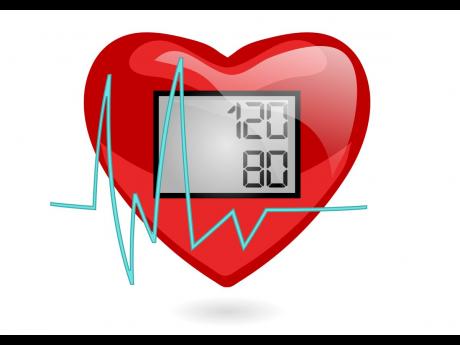COVID-19 spotlights Jamaica’s NCD problem
AS JAMAICA tries to re-emerge from the ravages of COVID-19, Minister of Health and Wellness Dr Christopher Tufton and National Epidemiologist and Principal Medical Officer in the ministry, Dr Webster Kerr, have highlighted that non-communicable diseases (NCDs) are a major problem in Jamaica, especially in the face of a virus, such as COVID-19.
Dr Kerr and Dr Tufton recently gave a detailed breakdown of the ‘vulnerable’ individuals in society who need to take extra precaution to avoid exposure to the virus. However, the damning details also brought to the fore Jamaica’s rampant NCD problem, which Dr Tufton has said “cannot go unchecked”. They revealed that half of the Jamaican workforce, aged 20 to 64, have at least one NCD, such as diabetes or heart disease, with approximately 40-50 per cent of people with an NCD being totally unaware that they have one.
And with those persons being more likely to become seriously ill if they contract the coronavirus, the minister reiterated that as the country moves forward, Jamaica Moves, which is the national campaign to fight NCDs, is important and will continue to push the reduction of NCDs.
He said, “We preach the message of knowing your health status. And all of this is related to the Jamaica Moves messages. Knowing your health status, consuming a balanced diet, [getting] at least half an hour exercise a day – is very much linked to the NCD epidemic that we now have.”
Dr Tufton and Dr Kerr, in acknowledging the unfortunate loss of 10 Jamaicans to complications related to COVID-19, noted that all 10 had at least one co-morbidity (or other diseases/underlying health issues) from a list of NCDs, including cancer, diabetes, hypertension, obesity and renal (kidney) disease, furthering the case for the country to adapt to the three Jamaica Moves messages.
“What it’s saying is that if you have an NCD, a lifestyle-related disease, hypertension, diabetes, heart disease, cardiovascular disease, and you get COVID-19, it increases your risk and, therefore, your likelihood of hospitalisation and critical illness,” added Dr Tufton.
Additionally, Dr Kerr shared that of the 10 persons who died of COVID-19 in Jamaica, eight had more than one NCD; seven had cardiovascular or heart-related diseases, including high blood pressure (hypertension), seven had diabetes, four were obese, two had kidney disease and one had cancer, among other conditions. She explained that these coexisting diseases (co-morbidities/underlying illnesses) increased the risk of experiencing the ‘poorest outcomes’, which are hospitalisation and death.
NCD STATISTICS
The minister said that the death of those 10 citizens is unfortunate, but he urged Jamaicans everywhere to take a look at the NCD statistics, especially those surrounding the workforce, and to consider making the necessary lifestyle changes as set out by Jamaica Moves. The campaign, which has continued to reach out to the vulnerable population through the use of its local televised home workout series and social-media platforms, continues to promote healthy eating, exercise and check-ups, to help combat the potentially crippling effects of NCDs.
He urged everyone to consider the effects of NCDs as not only damaging to individual health, saying, “We are getting an appreciation of the vulnerable persons in the society, and why we have to remain concerned and vigilant is because, frankly speaking, these persons are not just numbers. They are our mothers, our grandmothers, our grandfathers, our brothers, our nephews, our neighbours or us as individuals.”
He also called for these vulnerable persons and their loved ones to continue to practise caution as the country reopens its economy and its borders.
The Jamaica Moves campaign urges everyone to play their part. As the country’s coordinated national response to the increased incidence of NCDs, the campaign hopes to reduce NCDs by 25 per cent by the year 2025.

